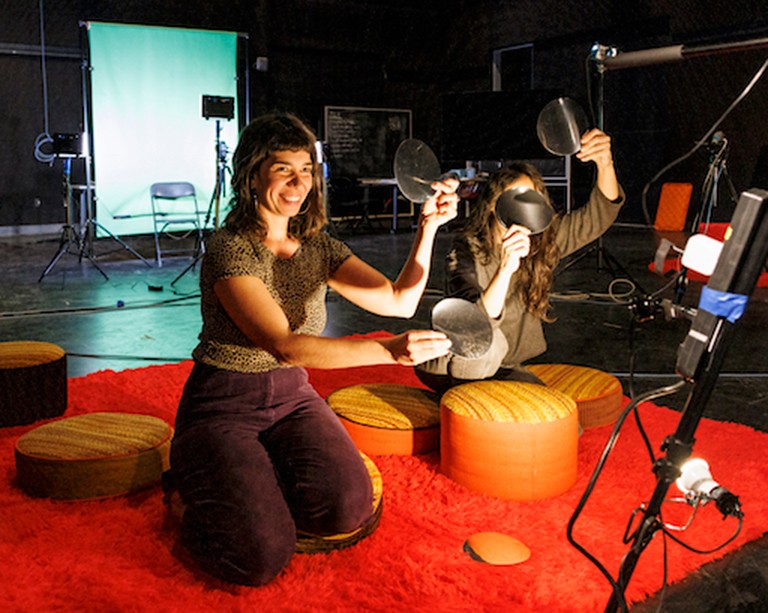Imagine a world where art education is not only about mastering techniques and understanding history but also about engaging with cutting-edge technology that reshapes the way we think about creativity and learning. At Concordia University, a team of visionary researchers is doing just that. Led by art education professor Jessie Beier, this team is diving into the fascinating intersection of artificial intelligence, art education, and accessibility through an innovative project known as "Learning Machines (Live From the Black Box!)."
Exploring New Frontiers
This groundbreaking initiative is not just about integrating AI into the classroom; it's about reimagining the very nature of educational spaces. By incorporating collaborative research and creative processes, the project seeks to understand how AI technologies can influence and enhance the learning experience. The team is particularly interested in how these technologies can provoke new discussions around intelligence, creativity, and pedagogy.
A Collaborative Journey
One of the most exciting aspects of "Learning Machines" is its collaborative nature. The project includes a live-streamed show that invites participants to engage with AI in real-time. This interactive element not only makes the research accessible to a broader audience but also encourages students and educators to think critically about the role of AI in art education.
"Our goal is to create a dialogue that challenges traditional notions of creativity and intelligence," says Jessie Beier. "By exploring these new technologies, we hope to open up new possibilities for both educators and students."
Redefining Accessibility
Accessibility is a key component of the project. By leveraging AI, the team aims to make art education more inclusive and adaptable to diverse learning needs. This approach ensures that every student, regardless of their background or abilities, can benefit from a personalized and enriched educational experience.
The "Learning Machines" project is a testament to the transformative power of AI in education. By embracing these technologies, Concordia University is not only preparing students for the future but also paving the way for a more inclusive and dynamic learning environment.
Originally published at https://www.concordia.ca/cunews/stories/2025/04/07/a-team-of-concordia-researchers-is-exploring-how-ai-can-shift-art-education-and-pedagogy.html
ResearchWize Editorial Insight
The article "AI and Art Education: A New Horizon" is a beacon of inspiration for both students and researchers, particularly those interested in the evolving landscape of education. It underscores the transformative potential of integrating artificial intelligence into art education, a field traditionally rooted in hands-on practice and historical study. This initiative at Concordia University, led by Professor Jessie Beier, is not merely about adding technology to the classroom; it's about fundamentally rethinking how we approach creativity and learning.
For teachers, this project offers a glimpse into how AI can be a tool for fostering critical thinking and dialogue around creativity and intelligence. It challenges educators to move beyond conventional teaching methods and engage students in new ways. The live-streamed, interactive nature of the "Learning Machines" project exemplifies how technology can make learning more dynamic and participatory, encouraging students to become active contributors rather than passive recipients.
From a classroom experience perspective, this initiative highlights the importance of creating educational spaces that are inclusive and adaptable. By leveraging AI, the project aims to tailor learning experiences to meet diverse needs, ensuring that all students, regardless of their abilities or backgrounds, can access and benefit from art education. This approach aligns with the broader educational goal of inclusivity, making sure that every student feels seen and supported.
For researchers, the article serves as a call to explore the intersections of technology, creativity, and pedagogy. It invites inquiry into how AI can reshape educational practices and what this means for the future of learning. The collaborative and accessible nature of the project also suggests a model for conducting research that is open and engaging, breaking down barriers between academia and the public.
In essence, this article matters because it presents a vision of education that is both forward-thinking and inclusive, urging us to consider how we can harness technology to enrich learning and make it accessible to all. As educators and researchers, it challenges us to reflect on our practices and embrace the possibilities that lie at the intersection of art, technology, and education.
Looking Ahead
Inclusion will be at the heart of this evolution. AI can be a bridge, helping to tailor educational experiences to meet individual needs. For students who learn differently, AI can offer alternative methods of engagement, ensuring that everyone has a seat at the learning table. This personalized approach will allow each student to shine in their own way, making education a truly inclusive experience.
Emotional intelligence will also play a crucial role. AI can support teachers in understanding the emotional dynamics of their classrooms, helping to create a nurturing environment where students feel safe to express themselves. By recognizing and responding to students' emotional cues, educators can foster a supportive atmosphere that encourages risk-taking and creativity.
Ultimately, the future of AI in education will be about more than just technology; it will be about people. By focusing on collaboration, inclusion, and emotional well-being, we can create a learning environment that not only prepares students for the future but also nurtures them as individuals. This vision of education is both hopeful and grounded, promising a future where every student can thrive.
Originally reported by https://www.concordia.ca/cunews/stories/2025/04/07/a-team-of-concordia-researchers-is-exploring-how-ai-can-shift-art-education-and-pedagogy.html.
Related Articles
- FSU’s 2025 Artificial Intelligence and Machine Learning Expo explores latest applications for technology in education
- Research news: Impact of AI in secondary classrooms
- (PDF) AI In Education: A New Era of Learning and Study
📌 Take the Next Step with ResearchWize
Want to supercharge your studying with AI? Install the ResearchWize browser extension today and unlock powerful tools for summaries, citations, and research organization.
Not sure yet? Learn more about how ResearchWize helps students succeed.

